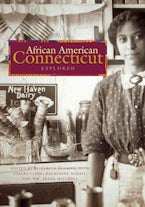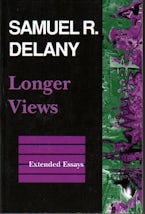- Home
- The Driftless Connecticut Series & Garnet Books
- social science
- history
- Prudence Crandall’s Legacy

Prudence Crandall’s Legacy
The Fight for Equality in the 1830s, Dred Scott, and Brown v. Board of Education
Series: The Driftless Connecticut Series & Garnet Books
Sales Date: 2016-06-07
Compelling account of the abolitionist's life, legal battles, and legacy
Prudence Crandall was a schoolteacher who fought to integrate her school in Canterbury, Connecticut, and educate black women in the early nineteenth century. When Crandall accepted a black woman as a student, she unleashed a storm of controversy that catapulted her to national notoriety, and drew the attention of the most significant pro- and anti-slavery activists of the day. The Connecticut state legislature passed its infamous Black Law in an attempt to close down her school. Arrested and jailed, Crandall's legal legacy had a lasting impact—Crandall v. State was the first full-throated civil rights case in U.S. history. The arguments by attorneys in Crandall played a role in two of the most fateful Supreme Court decisions, Dred Scott v. Sandford, and the landmark case of Brown v. Board of Education. In Prudence Crandall's Legacy, author and lawyer Donald E. Williams Jr. marshals a wealth of detail concerning the life and work of Prudence Crandall, her unique role in the fight for civil rights, and her influence on legal arguments for equality in America.
A Driftless Connecticut Series Book, funded by the Beatrice Fox Auerbach Foundation Fund at the Hartford Foundation for Public Giving.
Preface
Fire in the Night Sky
Liberators
Education for All
A Mountain of Prejudice
The Black Law
Sanctuary Denied
On Trial
Judge Daggett's Decision
Romantic Revolutionaries
Race Riots
Appeal for Equality
The End of the Beginning
Family Trials and Tragedies
Dred Scott and the Winds of Change
The Civil War
Reunions and Farewells
Pursuit of Justice
Prudence Crandall in the Twentieth Century
Epilogue
Notes
Illustration Credits
Index
DONALD E. WILLIAMS JR., former president of the Connecticut State Senate, is the Director of Policy and Research for the Connecticut Education Association. He holds a J.D. from Washington and Lee University School of Law and a B.S. in journalism from Syracuse University. He lives in Brooklyn, Connecticut.
"The doors that opened to schoolchildren all over America in the 1950s and 1960s were in a sense opened with a key supplied by Crandall ... [Williams] relates that it was the arguments of Crandall's attorneys in one of her trials that made it clear that black Americans were citizens—that they could cross state borders to go to Crandall's school, if they wished. And referring specifically to these arguments in the 1954 Brown v. Board of Education case helped NAACP lawyers win their own argument that African-Americans were entitled to go to the same schools as whites—not 'separate but equal' schools."
~Steve Courtney, Hartford Courant
"With Prudence Crandall's Legacy, Donald Williams offers a compelling and lively look at the long struggle for black equality in America. Taking readers from Connecticut schoolrooms to the highest court in the land, he gives us heroes and villains, triumph and tragedy, equity and injustice on the rough road to full freedom. In the end, Williams reminds readers that abolitionism was America's first civil rights movement and that race reformers like Prudence Crandall struggled mightily to overcome prejudice in the North as well as South."
~Richard S. Newman, author of Freedom's Prophet: Bishop Richard Allen, the AME Church and the Black Founding Fathers
"I applaud Donald Williams for this painstakingly researched, thought-provoking, and illuminating book.""
~Marilyn Nelson, co-author, with Elizabeth Alexander, of Miss Crandall's School for Young Ladies and Little Misses of Color
"Donald Williams's book about Prudence Crandall's legacy serves to remind us once more about how close in time America is to the darkest days of our history. I refer to a time when as a matter of law the government lawfully separated school children from one another on the basis of their color. That is all behind us now as a matter of law. Thanks to Prdence Crandall's Legacy we should be reminded that such barbarous practices survived into the twentieth century until held unconstitutional in Brown v. Board Education. The struggle in which Prudence Crandall engaged continues in the twenty-first.""
~Attorney Jack Greenberg, professor at the Columbia School of Law. As counsel for the NAACP's Legal Defense Fund, Greenberg helped argue Brown v. Board of Education, and defended Martin Luther King in Birmingham, Alabama.
""The book offers substantive and well-rounded portraits of abolitionists, colonizationists, and opponents of black equality—portraits that really dig beneath the surface to explain the individuals' motivations, weaknesses, politics, and life paths. In that vein, Williams successfully humanizes all of these characters.""
~Nikki Taylor, The New England Quarterly
"Donald Williams has authored what will become the authoritative history of Prudence Crandall and her controversial academy. Through a lively and carefully researched narrative, Williams richly intertwines the life of Crandall with other key protagonists of the struggle for abolition and black equality to show how Crandall's courageous stand in Canterbury and her persisting dedication to conscience and human freedom helped shape the struggle for black equality into the Civil War and beyond.""
~Peter P. Hinks, author of To Awaken My Afflicted Brethren: David Walker and the Problem of Antebellum Slave Resistance
""In fine fashion, Williams captures Prudence Crandall's depth of conviction, her humility, and the legacy of freedom for everyone.""
~Elizabeth Hohl, Connecticut History Review
""The dramatis personae of this book are incredible—nearly all the leading abolitionists, but especially Crandall's ally, William Lloyd Garrison, play important roles. A must for all libraries.""
~P. Harvey, Choice
""The doors that opened to schoolchildren all over America in the 1950s and 1960s were in a sense opened with a key supplied by Crandall [Williams] relates that it was the arguments of Crandall's attorneys in one of her trials that made it clear that black Americans were citizens—that they could cross state borders to go to Crandall's school, if they wished. And referring specifically to these arguments in the 1954 Brown v. Board of Education case helped NAACP lawyers win their own argument that African-Americans were entitled to go to the same schools as whites—not 'separate but equal' schools.""
~Steve Courtney, Hartford Courant
""A study of an abolitionist schoolteacher whose efforts to integrate her Canterbury, Connecticut school led to a court case that played a key role in the two landmark Supreme Court decisions.""
~The Chronicle of Higher Education










